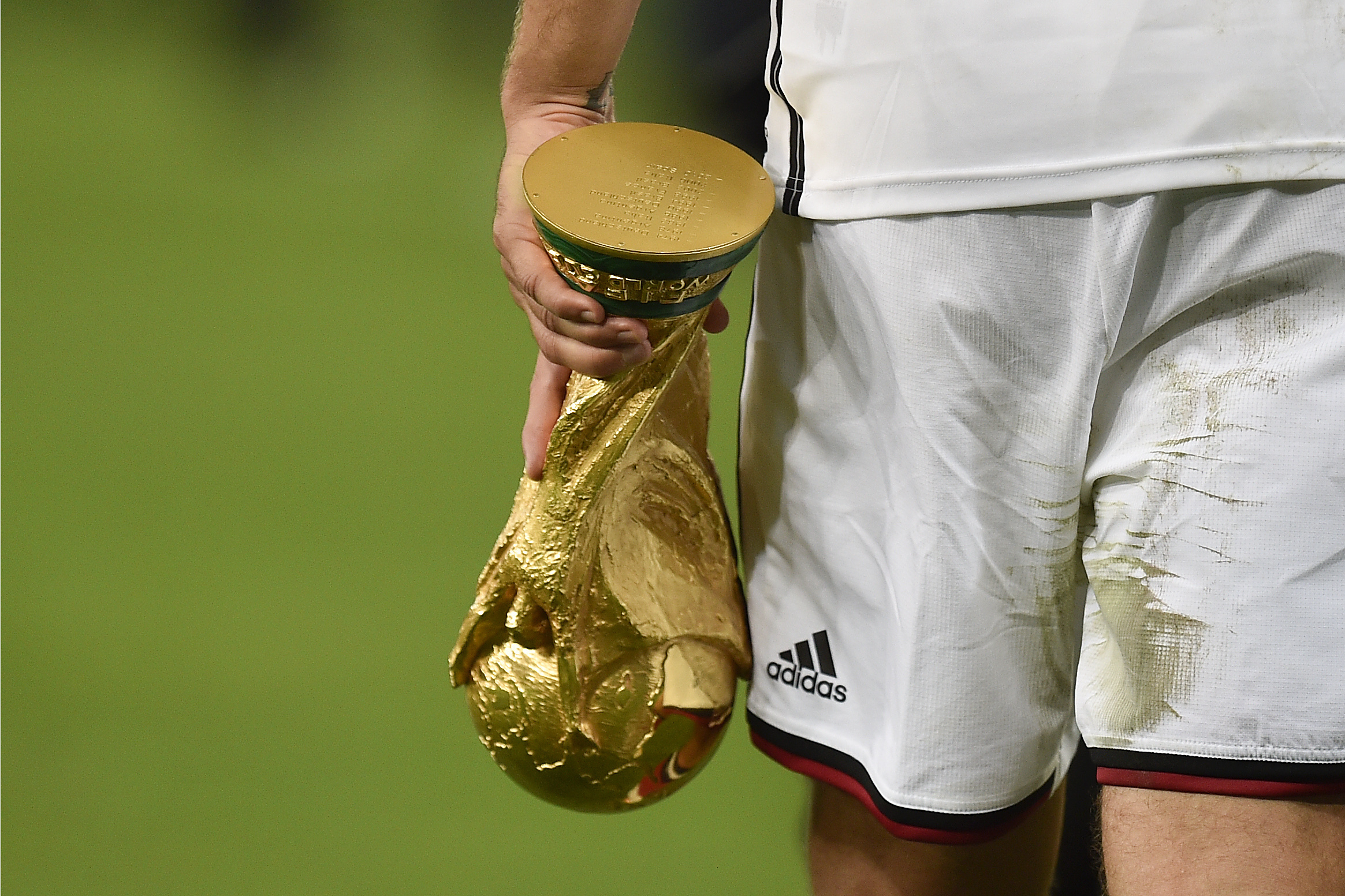
BERLIN (AP) — German football and Adidas are breaking up.
American sportswear giant Nike will supply all of Germany’s national teams with its apparel and equipment from 2027, the German football federation (DFB) surprisingly announced Thursday.
The new deal extends to 2034 and ends Germany’s long-standing relationship with Adidas, which goes back some 70 years and had appeared unshakeable.
Germany’s men’s team is using Adidas’ headquarters in Herzogenaurach, near Nuremberg, as its team base for the European Championship, which Germany is hosting this summer.
Adidas appeared to be surprised by the DFB’s decision to switch to its biggest rival, only confirming in a brief statement: “We were informed by the DFB today that the association will have a new supplier from 2027.”
German teams wore Adidas gear for all four of the men’s World Cup titles, their three European titles, and the women’s two World Cup and eight European titles.
The DFB later defended its switch to the American kit supplier.
“We understand every emotion. It’s also a drastic event for us as an association when it becomes clear that a partnership that was and is characterised by many special moments is coming to an end after more than 70 years. That doesn’t leave us cold,” the DFB wrote on X, formerly Twitter.
It said its first priority is football and its development in Germany, where it is responsible for more than 24,000 clubs and 2.2 million active players. It said it invests money in member clubs and its amateur base so football remains a sport for the people.
“The DFB has to make economic decisions against this background. Nike made by far the best financial offer in the transparent and non-discriminatory tender process,” the DFB wrote.
Earlier, DFB president Bernd Neuendorf said, “We’re looking forward to working with Nike and the trust they’ve placed in us. The future partnership will enable the DFB to continue to carry out key tasks in the coming decade with regard to the comprehensive development of football in Germany.”
Neuendorf pointed out that Adidas will remain the DFB’s supplier until December 2026 and “we will do everything we can to achieve shared success with our long-standing and current partner Adidas, to whom German football has owed a lot for more than seven decades.”
Adi Dassler, the founder of the German sportswear brand, sat on the bench beside West Germany coach Sepp Herberger when the German men’s team won the World Cup for the first time in 1954, wearing his company’s screw-in stud boots.
Dassler did not invent the boots with changeable studs, as many believe. They were invented some years before by German shoemaker Alexander Salot, who registered his invention with the German patent office on Aug 30, 1949.
But they certainly helped the Germans beat Hungary in the 1954 World Cup final. Dassler’s company has been supplying German football with its gear ever since, and only last week it presented the new jerseys for Euro 2024, which Germany will host between June 14 and July 14.
Germany’s under-21 coach Antonio Di Salvo said the decision to change kit supplier was “very surprising for everyone … especially now when the new jersey for the European Championship was presented. I did not expect that.”
The switch was driven by financial and other concerns.
“Nike made by far the best economic offer and also impressed with its substantive vision, which includes a clear commitment to the promotion of amateur and grassroots sports as well as the sustainable development of women’s football in Germany,” DFB chief executive Holger Blask said.
DFB treasurer Stephan Grunwald also pointed to a rosier future for German football as a result of the new deal.
“We are grateful to be able to look forward to an economically stable future as an association thanks to Nike’s commitment,” Grunwald said, without providing details of what the American company will pay.
It’s clearly more than Adidas was prepared to invest to extend its existing deal. But the DFB’s decision has not met universal approval at home.
“I can hardly imagine the German jersey without the three stripes,” German Vice Chancellor Robert Habeck said. “Adidas and black-red-gold always belonged together for me, a piece of German identity. I would have liked a bit more local patriotism.”



